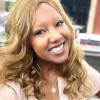How to Become a Professional Editor

In the traditional publishing world, the roles of writer and editor remain distinctly separate. This is vastly different for those of us with experience being on staff—or freelancing with— news outlets, media sources and glossy editorial publications. It is also not uncommon for editing work to be better compensated than copywriting. Your talents and competency rapidly are legitimized. Sometimes, like in my personal experience, seemingly overnight. The four years I spent on staff as an editor at a women’s lifestyle magazine thrusted my career forward by greatly increasing my knowledge of AP style, sponsored content and digital marketing. Almost everyday, I learned something new about the job—and myself.
Which is why this month, I had a candid conversation with Fabulous Media Group editor-in-chief Melissa Larsen about how being an editor-for-hire is more accessible than many writers may realize. (Fun fact: Larsen is currently the managing editor of Luxe Getaways too—thanks to being an Arizona-based writer and veteran editor with 20 years of experience in print and online luxury lifestyle publications.) Since graduating from Northern Arizona University with a bachelor’s degree in journalism, Larsen has written about dining, travel, nightlife, fashion, fitness, beauty, nonprofits, real estate, high-profile events and more.
If you’ve ever wondered how writers can pivot into becoming professional editors (or adding it to a freelance “services” menu), Larsen’s insight will hopefully propel you to take action rather than staying stuck at “What if?...” with less cash flow.
Rachel: What is an effective way to pitch yourself as an editor? Should it differ from pitching oneself as a writer?
Melissa: I don't think there is much difference between how you would pitch yourself as an editor and as a writer. Either way, you'll want to pay close attention to the business/publication you are pitching. When emailing or rechecking out to a potential job, make sure you discuss why you are right for that particular job. A canned email isn't the way to go here.
R: Have any advice for developing and maintaining healthy working relationships with those who hire you?
M: Communication and consistency. And follow the writer's guidelines (to the best of your ability).
R: Best way you know to find more paid gigs? Or build a solid network of professional contacts?
M: Social media groups are a great touchstone for writers and editors to gather, discuss projects, notes, clients, sources etc.
R: Were there any opportunities or resources that were helpful in the early stages of your journey to becoming an editor?
M: Internships! In college, I interned at the local newspaper and also worked for the student newspaper. As a new grad, I interned at a local magazine for several months, which eventually led to my first editing job. Take advantage of the career services that your college offers. See if the college offers a mentorship program. Get as much face time with fellow writers and editors as possible.
R: Fave recent quote.
M: “Writing is a superpower… it’s a baseline for so many other things.” (*as stated by comedian, producer and author Amy Poehler on an episode of Dax Shepard’s podcast “Armchair Expert” I was listening to earlier this summer.)
Larsen also reveals how being a pro editor has affected her writing skills over the years in the full recorded interview, which is web exclusive content on Lit!Commons. Not a subscriber? Let’s get you signed up!
